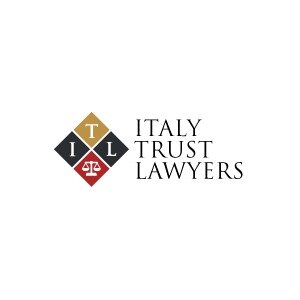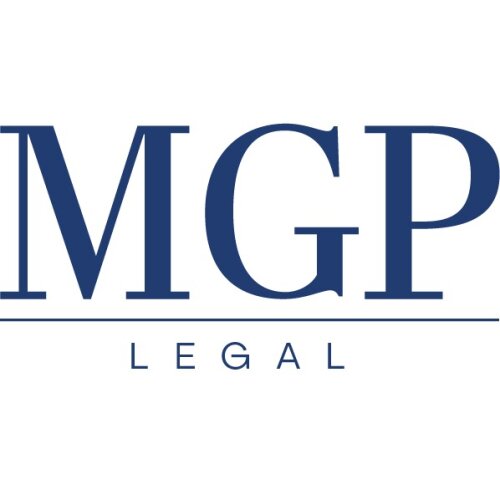Best Housing, Construction & Development Lawyers in Florence
Share your needs with us, get contacted by law firms.
Free. Takes 2 min.
Free Guide to Hiring a Real Estate Lawyer
List of the best lawyers in Florence, Italy
About Housing, Construction & Development Law in Florence, Italy
Housing, construction, and development laws in Florence, Italy, are deeply rooted in both historic preservation and modern development. Florence, a city known for its rich cultural heritage and iconic architecture, enforces stringent regulations to maintain the integrity of its historic sites while also accommodating urban growth and infrastructure improvement. The legal framework governing these areas encompasses a diverse array of topics, including zoning laws, building permits, land use, tenant rights, and environmental regulations, all designed to balance progress with preservation.
Why You May Need a Lawyer
There are several common scenarios where individuals or businesses may require legal assistance in housing, construction, and development in Florence. These include dealing with complex zoning regulations, resolving disputes between landlords and tenants, negotiating construction contracts, navigating the bureaucratic processes for obtaining building permits, addressing complaints about construction defects or delays, and ensuring compliance with environmental and safety standards. Legal expertise can be crucial in navigating these challenges effectively and protecting one's legal and financial interests.
Local Laws Overview
Florence, like the rest of Italy, bases its housing and construction laws on national regulations, but also incorporates specific local ordinances. Historically, preservation laws are particularly robust, ensuring that new developments or renovations do not compromise the city's architectural heritage. Building projects often require comprehensive environmental assessments and strict compliance with Italian fire and safety codes. Urban zoning laws regulate land use to prevent incongruous development within the historic city center. Additionally, tenant protection laws are stringent, offering tenants guarantees such as lease termination notices and refurbishment rights.
Frequently Asked Questions
What are the steps to obtain a building permit in Florence?
To obtain a building permit in Florence, an applicant typically must submit detailed plans and documentation to the local municipality. This includes architectural drawings, environmental impact assessments, and compliance with zoning bylaws. Approval may necessitate reviews by multiple municipal departments and often includes public notification.
Can I renovate a historic property in Florence?
Renovating a historic property requires strict adherence to heritage preservation laws. You will likely need special permissions from cultural heritage authorities, and renovations must preserve the property's original character while meeting safety standards.
How are tenant rights protected in Florence?
Tenants in Florence are protected by laws that ensure fair rental agreements, proper notice for lease termination, and the right to live in conditions that meet health and safety standards. Disputes typically involve mediation or resolution through local housing authorities.
What if there's a construction delay or defect?
Construction delays or defects should first be addressed through negotiation with the contractor. If unresolved, it may require legal intervention to enforce contract terms or seek compensation for damages.
What do zoning laws dictate in Florence?
Zoning laws in Florence are designed to control land use, ensuring it is suitable for residential, commercial, or industrial purposes, often with specific conditions for development or renovations, especially in historic areas.
Are there specific environmental regulations for construction?
Yes, Florence enforces several environmental regulations that require construction projects to assess and mitigate their environmental impact, adhering to regional and national environmental standards.
How are property boundaries determined?
Property boundaries in Florence are typically determined by cadastral surveys conducted by professional land surveyors. Disputes are handled judicially, often requiring an updated survey and legal intervention.
Can foreigners buy property in Florence?
Yes, foreigners can buy property in Florence, though it includes additional legal processes, such as verification of technical and legal conformity, often requiring a notary and legal representation.
What if I need to evict a tenant?
Evicting a tenant involves a legal process, ensuring compliance with Italian property law, which protects tenant rights. It typically requires proof of cause, such as lease violations or failure to pay rent, and legal proceedings through the court.
How do I challenge a zoning decision?
To challenge a zoning decision, you must file an appeal with the relevant administrative body, often requiring detailed justification and possibly legal representation to articulate your case effectively.
Additional Resources
Several resources can be helpful for those seeking legal advice in housing, construction, and development in Florence. These include the local municipality's planning and building department, which provides guidelines and regulations; the Chamber of Commerce of Florence, which offers resources for businesses; and professional associations for architects and engineers. Legal professionals or firms specializing in real estate law can also provide valuable guidance and representation.
Next Steps
If you require legal assistance in the field of housing, construction, and development, consider starting by identifying the specific nature of your legal needs. Research and contact local law firms specialized in real estate and construction law. Prepare all necessary documentation related to your case, such as contracts, permits, or correspondence. Consulting with a legal professional will help clarify your situation and provide tailored legal options for resolving your issues effectively within the legal framework of Florence, Italy.
Lawzana helps you find the best lawyers and law firms in Florence through a curated and pre-screened list of qualified legal professionals. Our platform offers rankings and detailed profiles of attorneys and law firms, allowing you to compare based on practice areas, including Housing, Construction & Development, experience, and client feedback.
Each profile includes a description of the firm's areas of practice, client reviews, team members and partners, year of establishment, spoken languages, office locations, contact information, social media presence, and any published articles or resources. Most firms on our platform speak English and are experienced in both local and international legal matters.
Get a quote from top-rated law firms in Florence, Italy — quickly, securely, and without unnecessary hassle.
Disclaimer:
The information provided on this page is for general informational purposes only and does not constitute legal advice. While we strive to ensure the accuracy and relevance of the content, legal information may change over time, and interpretations of the law can vary. You should always consult with a qualified legal professional for advice specific to your situation.
We disclaim all liability for actions taken or not taken based on the content of this page. If you believe any information is incorrect or outdated, please contact us, and we will review and update it where appropriate.















